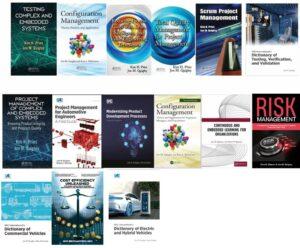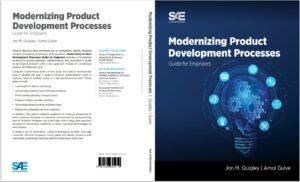Sharing Knowledge Freely
Sharing Knowledge Freely- And Knowing When to Charge
By Jon M. Quigley
As someone passionate about my field, I often share technical insights and advice, sometimes without expecting anything in return. My family occasionally worries that I give away too much for free. Recently, I discussed AI and its applicability within the product development context at OEMs with a LinkedIn / SAE contact. It was an engaging chat for sure, and made me glad I have been using AI over the past 3 years or so in the context of product development as well as being glad I was a developing automotive products long before the arrival of AI. I understand their concern: in a world where expertise is valuable, shouldn’t I be more protective of my time and knowledge?
Why I Share Freely
Sharing knowledge isn’t just about generosity and building trust, credibility, and community. When I answer questions or offer guidance, I am not just helping someone solve a problem-I’m also:
- Establishing myself as an expert
People remember those who help them. Freely sharing knowledge can lead to referrals, recommendations, and opportunities I might not have found otherwise. - Expanding my network
Every conversation is a chance to connect with someone new. Sometimes, a simple answer leads to deeper collaboration or a paid project later. - Staying sharp
Explaining concepts to others forces me to clarify my understanding and stay up to date in my field. - Ideas for Future
These conversations lead me to other ideas beyond what was perhaps articulated in the discussion.
That is not to suggest that I am only in it for the money, but I have a family to feed and keep a roof over their heads, as well as plan for the future in whatever way I can. I have spent most of my career working to learn as much as I can about product development. Besides wide-ranging work experiences, from various engineering roles to project manager, and department manager., I have spent time studying. I have an MBA in Marketing, because it is insufficient understanding of customer needs and how to engage them will lead to poor results. Similarly, my MSc in Project Management is due to recognition that the inability to deliver the product at a time and within product and development costs will also fail. Success requires
Market Need +Engineering (creative) + Project Management
The Business Perspective
Of course, time is valuable, and expertise is worth compensation. Here’s how I try to strike a balance:
- Set boundaries
I’m happy to answer quick questions or participate in community forums. Still, if someone needs ongoing support or in-depth consulting, I make it clear when we need to formalize the engagement. - Offer “teasers,” not the whole meal
I might provide a high-level overview or point someone in the right direction, but reserve detailed solutions or implementation for paying clients. - Use free advice as a marketing tool
Blog posts, webinars, and Q&A sessions showcase my skills and attract potential clients. It’s a form of inbound marketing, demonstrating value before asking for a sale.
Finding the Right Balance
There’s no one-size-fits-all answer. Some of the most successful professionals I know are generous with their knowledge and clear about their boundaries. The key is to be intentional: give freely when it builds relationships or reputation, but don’t hesitate to say, “This is where my paid services begin.”
In the end, sharing knowledge has opened more doors for me than it’s closed. But I’m learning to recognize when it’s time to turn a helpful conversation into a mutually beneficial partnership.
What’s your approach? Have you found a balance between giving and earning? I’d love to hear your thoughts!
For more information, contact us:
The Value Transformation LLC store.
Follow us on social media at:
Amazon Author Central https://www.amazon.com/-/e/B002A56N5E
Follow us on LinkedIn: https://www.linkedin.com/in/jonmquigley/



